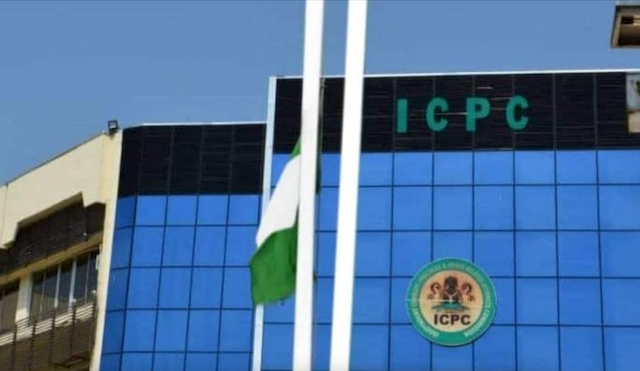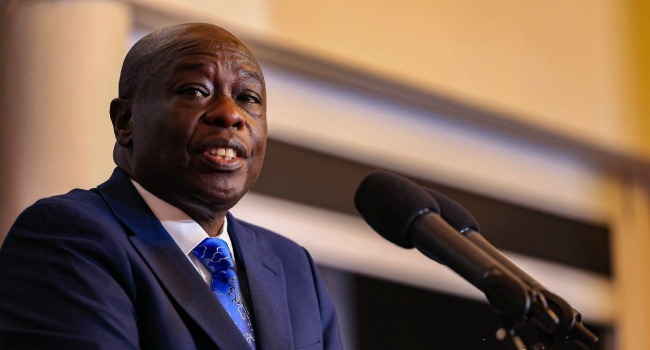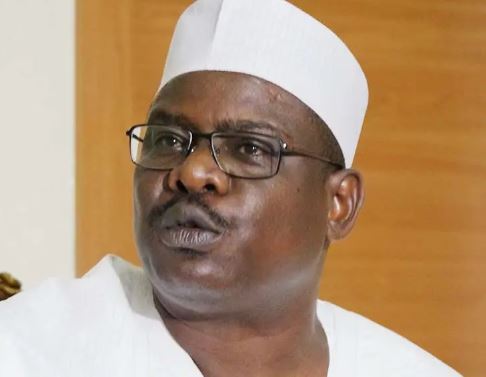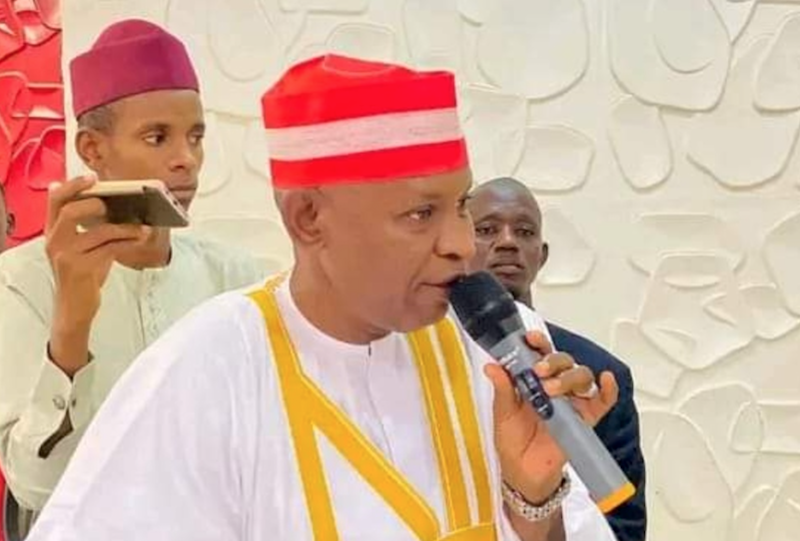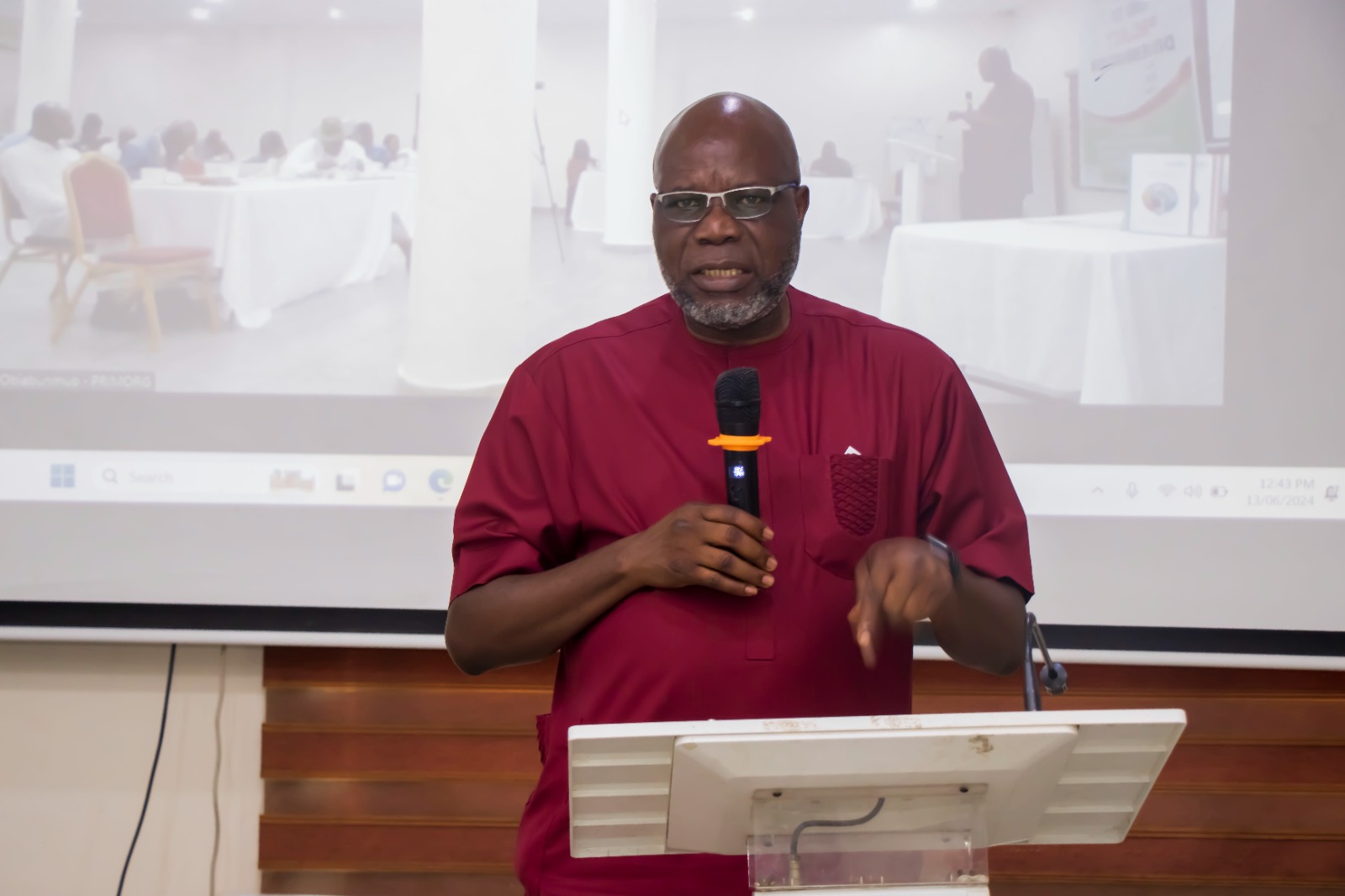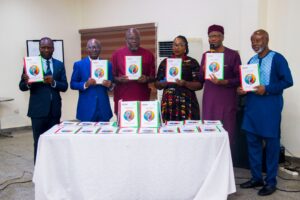Mr Yisa Usman, the sacked deputy director in Joint Admissions and Matriculation Board (JAMB), has said that he was determined to expose corruption in the board irrespective of the threat and intimidation against him.
Usman told Justice Osatohanmwen Obaseki-Osaghae of the National Industrial Court, Abuja, while being cross examined as sole witness in the suit instituted against JAMB over his alleged unlawful dismissal.
While responding to questions put to him by counsel to JAMB, A. A. Owonikoko, the witness admitted writing petitions to various government agencies over alleged corruption in the board
The aggrieved ex-worker, who admitted receiving queries from the board and an invitation letter to appear before a disciplinary committee before his job was terminated, said he answered the queries and wrote a protest letter against the composition of the committee.
When Owonikoko asked Usman about the email message attached to the invitation letter, dated May 17, 2023, in response to the disciplinary committee’s invitation, the witness admitted writing the reply.
The lawyer then asked Usman to read out the printout of the email message dated May 18, 2023 in open court.
The witness, while reading, said: “Dear Directors, this is a follow-up to the two queries issued to me. I received a letter of invitation on Tuesday, 16th May, 2023, to appear before Disciplinary Committee.
“The attached is my response to the invitation for your information.
“This new development only renew my determination to continue with my quest for justice and my fight against the corrupt practices that characterise our organisation in the past six to seven years, which I stated in the letter, are perpetrated under the cover of the remittances made to the government.’
“It is of note that I am invited to appear before Disciplinary Committee while my contemporaries are invited to promotional examination to substantive director.
.
“But I am not bothered because I do know for certain that God alone promotes.
“I am not deterred by this development, neither am I intimidated in any way.
“The fight against corruption and abuse of authority is the responsibility of every Nigerian. The law will take its course, no matter how long it takes. Thank you.”
He told the court that his reply to the query was submitted in hard copy to his immediate superior and because he wanted all members of the management to be privy to what was going on, he also sent the message to the email addresses of the directors.
“My Lord, the email was to communicate to the directors, the response to the query that was issued to me,” he said.
When Owonikoko told him that his email message was totally unrelated to the subject for which he was invited by the committee, Usman said: “My Lord, it is related.”
The ex-staff admitted writing several petitions against JAMB to different investigating agencies, including National Assembly, about the alleged financial infractions under the current JAMB Registrar, Prof. Ishaq Oloyede.
He admitted writing to Attorney-General for the Federation, Independent Corrupt Practices and Other Related Offences Commission, Economic and Financial Crimes Commission and Department of State Services.
He also admitted writing to the Minister of Education, Head of Service, National Human Rights Commission and Bureau of Public Procurement about alleged corruption, harassment, victimisation and procurement infractions.
When the lawyer asked him that all his petitions were directed at indicting the JAMB registrar as corrupt, Usman responded in the affirmative.
Owonikoko also asked Usman to read out the last two paragraphs in his response to the disciplinary committee and he read thus:
“As a committed Nigerian citizen, my loyalty remains first to the nation before any individual. The fight against corruption is the responsibility of everyone.
“The threat of the registrar to cause me harm or have my appointment terminated will not deter me, neither will the continued attempt to malign me.
“I remain determined in the fight for justice and against the corrupt practices in the system. I will not back down for any reason until justice is done and seen to be done.
“And while I look up to God for complete respite, I wish to state it here that my life has been under constant threat for the bold action I took to disclose the corrupt practices in JAMB and the abuse of authority by the Registrar, Prof. Ishaq Oloyede.
“I reported this to the DSS and the IGP previously. I am again stating it here that if anything happens to me, the Registrar, Prof. Ishaq Oloyede, and his DFA, Mr. Mufutau Bello, should be held responsible.’’
When the lawyer also asked him to read Paragraph 2 of the dismissal letter, Usman read thus:
‘‘This is sequel to the recommendation of the Directorate Staff Disciplinary Committee after due consideration of your written responses to the allegations of serious misconduct leveled against you.
“And also after taking cognisance of your letter of 17th May, 2023, wherein you state never to appear before the Board staff disciplinary committee despite the formal letter of invitation requesting you to appear.’’
Usman, however, denied saying that he would never appear before the disciplinary committee.
Usman said his letter of May 17, 2023, in response to the disciplinary committee’s invitation, was to reject the constitution of the committee.
According to him, the reason stated, my lord, was that they were all complicit in the infractions I reported to the relevant government agencies, and for that reason, I was not certain of getting fair hearing.
When asked if he was aware that the committee did not include the registrar of the board, he said: “My lord, I am not aware.”
When also asked if he was aware that the registrar and Director of Finance and Account (DFA) recused themselves in the committee, Usman said: “My Lord, I was never communicated to that effect. So, I was not aware.”
He admitted saying that the DFA “has overshot his retirement period and occupying the office illegally.”
When the lawyer asked him if he named the DFA as a party in his suit, he said: “My Lord, my suit is against JAMB and the DFA is a management member in JAMB.”
Usman denied that the criminal charge preferred against him at the Federal High Court in Abuja was as a result of the investigation conducted into his allegations against the board and after they were found to be unmeritorious.
Owonikoko to Usman: “Confirm to this honourable court that when the present Registrar assumed office, he did an audit of the finances and it was in the course of this that the investigating authorities came up with some of these infractions?”
“My lord, that is not true,” he responded.
When the lawyer asked him to confirm the date the five-count charge was filed, Usman said it was instituted on March 30, 2023.
When the lawyer then asked if there had never been any investigation into the activities of JAMB by investigating authorities since Oloyede assumed office, Usman said: “My lord, there had been investigations indeed but the charge just read out was never part of that investigation.”
Earlier, Justice Obaseki-Osaghae admitted the list of the claimant’s documents and statements on oath in evidence as presented by his lawyer, Mohammed Shuaibu, and marked as Exhibits C1-C5, CE1-CE23, and C6-C15 respectively.
The judge said the admissibility was subject to the right of the defendant to object to anyone of them.
The judge adjourned the matter until Feb. 27 for the defendant to open its defence.
It would be recalled that Usman had filed a N150 million suit against the board over alleged unlawful dismissal.
Usman, in the suit marked: NICN/ABJ/266/2023 and filed by his lawyer, Oseini Bamigbaye from the Chambers of Mohammed Shuaibu, sought nine reliefs.
While Usman is the claimant, JAMB is the sole defendant in the case dated and filed Sept. 29, 2023.
The claimant prayed the court to declare that the constitution of the Board’s Directorate Staff Disciplinary Committee set up by the office was wholly irregular, illegal, null and void for failure to comply with Article 3.5.4 of the Board’s Staff Manual and Conditions of Service.
He also prayed the court to declare that the composition of the committee, mostly consisting of the board’s registrar and other directors who were beneficiaries of infractions exposed by him “in Item No. 6, Page 5 of his response dated April 3, 2023, to the query issued on March 31, 2023, is unconstitutional,null and void.”
He premised his argument on the grounds that his right to fair hearing could not have been guaranteed before the committee.
Usman urged the court to declare that “the claimant’s purported dismissal by the defendant without the consideration of the Committee’s Report by the defendant’s board is unlawful, illegal null and void.”
The claimant, who sought an order setting aside his “purported dismissal” by the board, prayed the court for an order reinstating him “to his position with full entitlements, benefits and perks due to him by virtue of his position.”
He sought an order granting to the claimant all the salaries, allowances, perks due to him or that would have been due to him but for the purported dismissal, among others.

